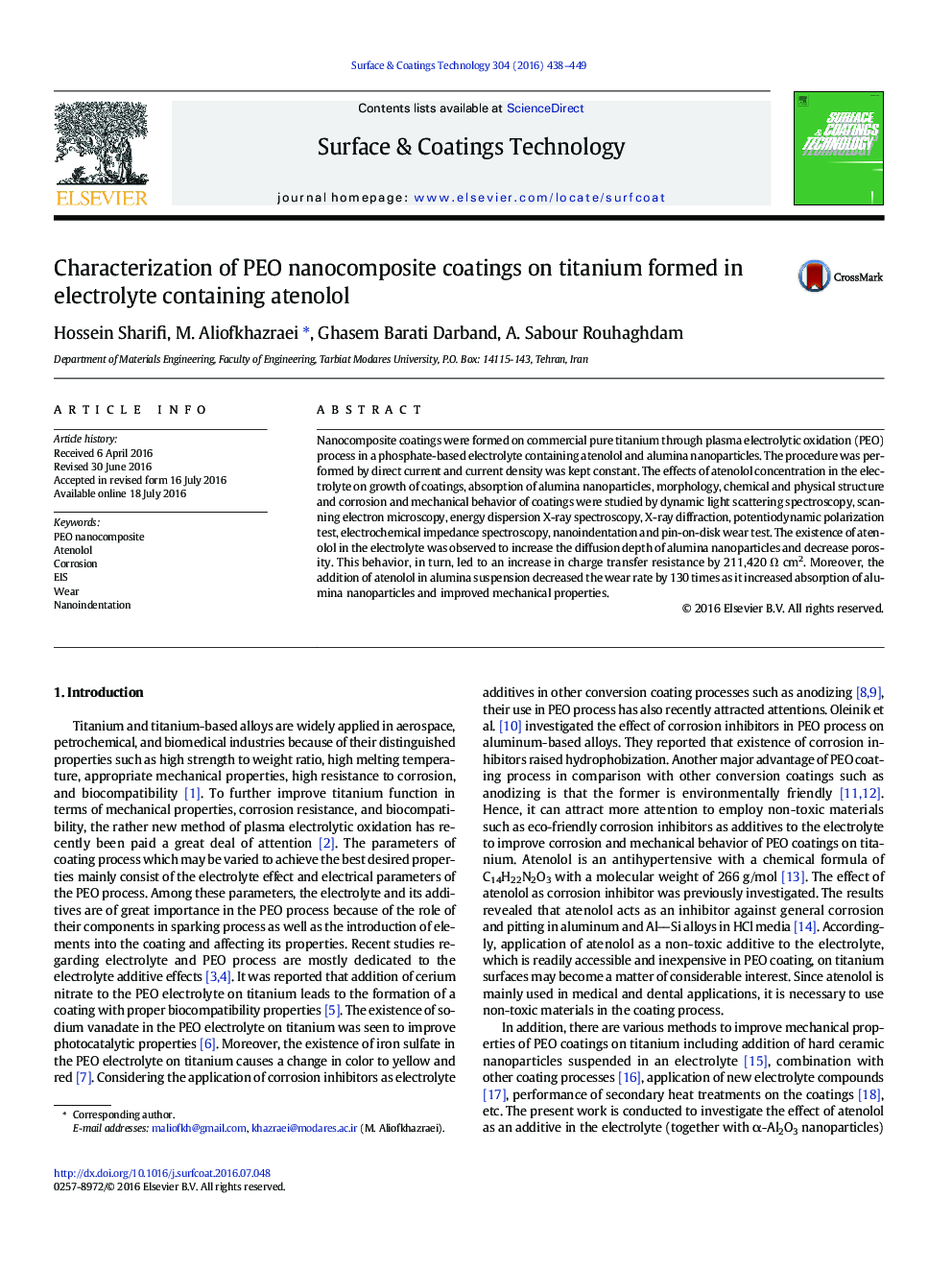| Article ID | Journal | Published Year | Pages | File Type |
|---|---|---|---|---|
| 8025034 | Surface and Coatings Technology | 2016 | 12 Pages |
Abstract
Nanocomposite coatings were formed on commercial pure titanium through plasma electrolytic oxidation (PEO) process in a phosphate-based electrolyte containing atenolol and alumina nanoparticles. The procedure was performed by direct current and current density was kept constant. The effects of atenolol concentration in the electrolyte on growth of coatings, absorption of alumina nanoparticles, morphology, chemical and physical structure and corrosion and mechanical behavior of coatings were studied by dynamic light scattering spectroscopy, scanning electron microscopy, energy dispersion X-ray spectroscopy, X-ray diffraction, potentiodynamic polarization test, electrochemical impedance spectroscopy, nanoindentation and pin-on-disk wear test. The existence of atenolol in the electrolyte was observed to increase the diffusion depth of alumina nanoparticles and decrease porosity. This behavior, in turn, led to an increase in charge transfer resistance by 211,420 Ω cm2. Moreover, the addition of atenolol in alumina suspension decreased the wear rate by 130 times as it increased absorption of alumina nanoparticles and improved mechanical properties.
Related Topics
Physical Sciences and Engineering
Materials Science
Nanotechnology
Authors
Hossein Sharifi, M. Aliofkhazraei, Ghasem Barati Darband, A. Sabour Rouhaghdam,
